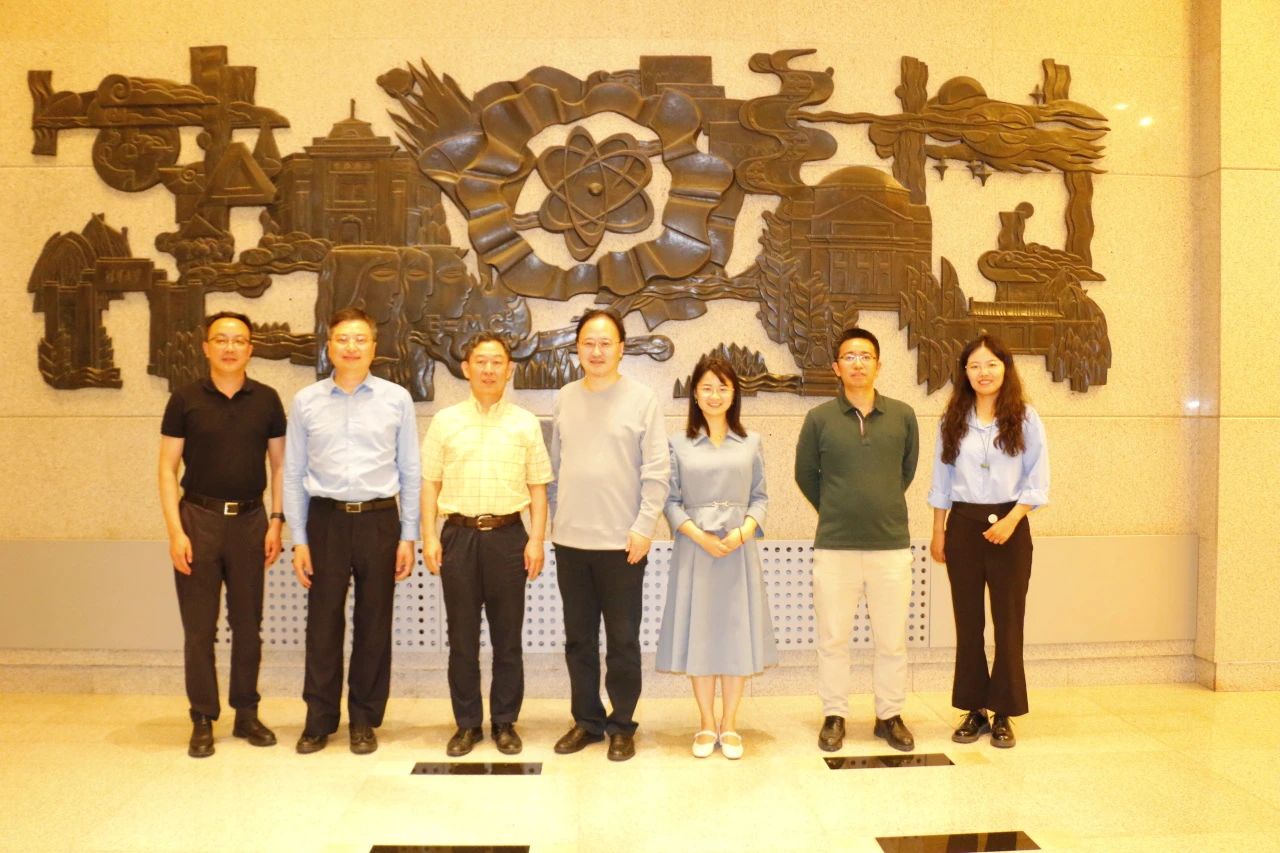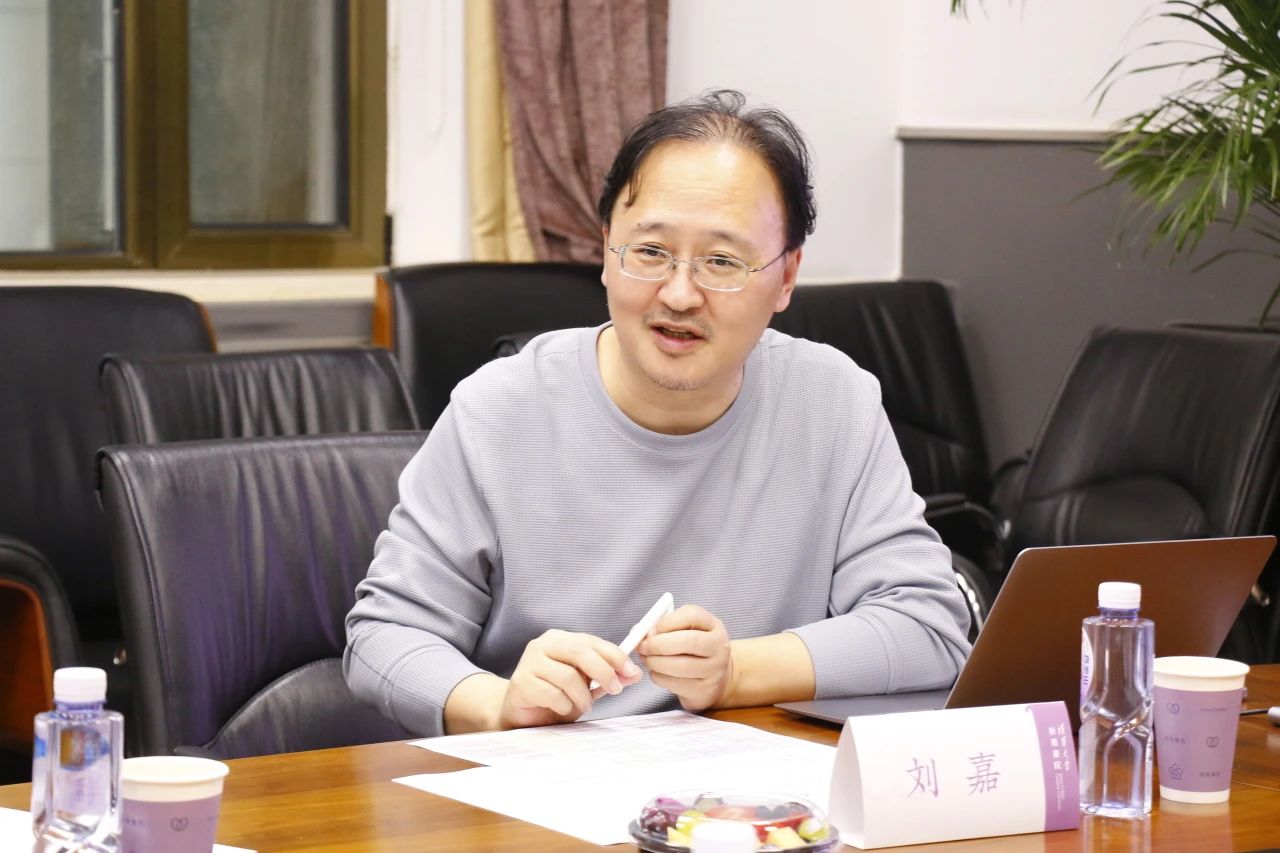Editor's Note
Mind, Brain & Machine (MBM) is a new interdisciplinary program offered by Tsinghua University's Xinya College, based on psychology, brain science, and artificial intelligence (AI). It aims to cultivate top-notch innovative talent who are knowledgeable about arts, sciences, and engineering, explore the cognitive and neural mechanisms behind psychological phenomena, and develop bio-inspired AI.

On the evening of May 10, the Department of Psychological and Cognitive Sciences & Xinya College MBM Teaching Committee was officially established and held its first meeting. Attendees included Prof. Liu Jia, Director of the Department of Psychological and Cognitive Sciences, Associate Prof. Wu Zhen, Deputy Director of the Department of Psychological and Cognitive Sciences, Prof. Zhang Changshui and Prof. Tao Jianhua of the Department of Automation, Prof. Sun Maosong of the Department of Computer Science and Technology, Associate Prof. Yuan Kexin of the Department of Biomedical Engineering, Dean Mei Ciqi of Xinya College, and other members of the MBM Teaching Committee. The meeting was presided over by Associate Prof. Wu Zhen.
The meeting began with the election of the Director and Deputy Director of the Teaching Committee and the review of the Teaching Committee's charter. Prof. Liu Jia was elected as Director and Associate Prof. Wu Zhen Deputy Director, and attendees approved the charter of the Department of Psychological and Cognitive Sciences and Xinya College MBM Teaching Committee.
Following that, Prof. Liu Jia delved into the design concept and teaching models of MBM, a novel interdisciplinary program. He highlighted that the program is rooted in the forefront of technology, encompassing various fields such as psychology, brain science, and AI. It is committed to breaking traditional boundaries in psychology and cultivating top-notch innovative talent who are knowledgeable in arts, sciences, and engineering. Prof. Liu also outlined the teaching methodologies to be explored in the MBM program, introducing the "project-based learning" and "phenomenon-based learning" approaches. Lastly, he provided insights into the international development trends and vast prospects of the MBM program.

Prof. Liu Jia
At the end of the meeting, Associate Prof. Wu Zhen reported on the curriculum design of the MBM Undergraduate Training Scheme. Committee members present engaged in in-depth discussions regarding the innovation of teaching models and the design of general and specialized courses, improving the training scheme from multiple perspectives based on the insights from different disciplines.
On the evening of May 23, the MBM program held its first student meeting. Attendees included Associate Prof. Wu Zhen, Liu Jingyuan, head teacher of the inaugural MBM class, Zhang Tengyu, Secretary of the Teaching Affairs Office, Zhang Weite, Deputy Dean of Xinya College, Zhang Wenjing, Director of the Teaching Affairs Office of Xinya College, and ten first-year students from the inaugural class.
On behalf of Xinya College, Deputy Dean Zhang extended a warm welcome to all students who chose the MBM program. He expressed that opting for a new and challenging interdisciplinary program that integrates the arts, sciences, and engineering requires courage, determination, and ambition. He hoped that the first cohort of 10 MBM students could get familiar with each other as soon as possible, adapt to college life, demonstrate perseverance and resilience in their studies and lives, and embrace a spirit of daring and innovation.
Associate Prof. Wu Zhen provided an overview of the faculty composition, student-teacher ratio, and course preparations of the Department of Psychology. She looked forward to embarking on this journey together with the students, sailing towards a bright future. Subsequently, she elaborated on the MBM Undergraduate Training Scheme, teaching schedule, teaching methodologies, and new courses.
Following this, each student introduced themselves. Teachers and students had in-depth exchanges on issues such as course selection for the autumn and summer semesters, course substitution, and future development plans.